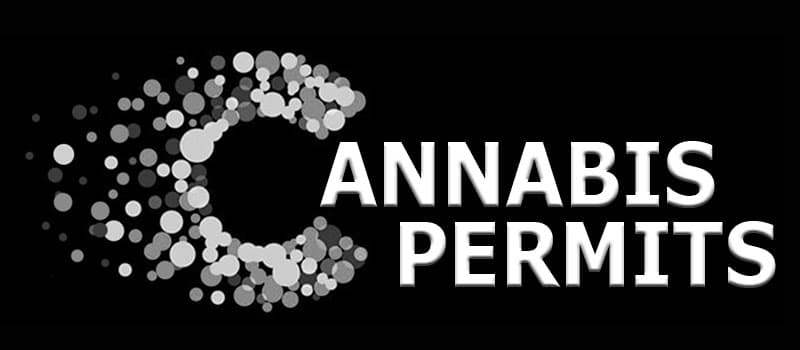California Cannabis Licensing
California Cities and Counties
Click on a county below to get more information on both the county and cities within it. Step one is to learn if your city or county allows cannabis businesses.
Cultivation Licenses
The Department of Cannabis Control (DCC) will issue
17 types of cannabis cultivation licenses:
|
Nursery Cultivation of cannabis solely as a nursery (examples of typical nursery activities include cloning and seed propagation) |
Specialty Cottage Indoor An indoor cultivation site with up to 500 square feet or less of total canopy |
|
Specialty Cottage Outdoor An outdoor cultivation site with up to 25 mature plants |
Specialty Cottage Mixed-Light A mixed-light cultivation site with 2,500 square feet or less of total canopy |
|
Specialty Outdoor An outdoor cultivation site with 5,000 square feet or less of total canopy—or up to 50 mature plants on noncontiguous plots |
Specialty Indoor An indoor cultivation site of between 501 and 5,000 square feet of total canopy |
|
Specialty Mixed-Light A mixed-light cultivation site of between 2,501 and 5,000 square feet of total canopy |
Small Outdoor An outdoor cultivation site of between 5,001 and 10,000 square feet of total canopy |
|
Small Indoor An indoor cultivation site of between 5,001 and 10,000 square feet of total canopy |
Small Mixed-Light A mixed-light cultivation site of between 5,001 and 10,000 square feet of total canopy |
|
Medium Mixed-Light A mixed-light cultivation site of between 10,001 and 22,000 square feet of total canopy |
Medium Indoor An indoor cultivation site of between 10,001 and 22,000 square feet of total canopy |
|
Medium Outdoor An outdoor cultivation site of between 10,001 square feet and 1 acre of total canopy |
Large Mixed-Light Note: DCC will not issue any Large Mixed-Light licenses prior to January 1, 2023 For cultivation using a combination of natural and supplemental artificial lighting at a maximum threshold (which will be determined by the licensing authority) for more than 22,000 square feet of total canopy size on one premises |
|
Large Outdoor Note: DCC will not issue any Large Outdoor licenses prior to January 1, 2023 For outdoor cultivation that uses no artificial lighting for more than 1 acre of total canopy size on one premises |
Large Indoor Note: DCC will not issue any Large Indoor licenses prior to January 1, 2023 For indoor cultivation that exclusively uses artificial lighting for more than 22,000 square feet of total canopy size on one premises |
|
Processor A cultivation site that conducts only trimming, drying, curing, grading, or packaging of cannabis and nonmanufactured cannabis products |
|
Retail, Microbusiness, Distribution & Testing Licenses
|
Retailer: Sells cannabis goods to customers at its premises or by delivery. A retailer must have a licensed physical location (premises) where commercial cannabis activities are conducted. |
Testing laboratory: A laboratory, facility, or entity in the state that offers or performs tests of cannabis goods. Testing laboratories must obtain and maintain ISO/IEC 17025 accreditation. Testing laboratories may be issued a provisional license allowing them to operate while they obtain ISO/IEC 17025 accreditation, provided they meet all other licensure requirements. |
|
Retailer (nonstorefront): Sells and delivers cannabis goods to customers. A retailer (nonstorefront) must have a licensed premises, but it is not open to the public. |
Microbusiness: Allows a licensee to engage in cultivation (on an area less than 10,000 square feet), manufacturing (Level 1 manufacturing, Type 6), distribution, and retail sale, or any combination of the four activities. Licensees will be required to comply with all rules and regulations, which will include, where applicable, regulations adopted by the California Department of Food and Agriculture and the California Department of Public Health, governing the activities they are engaged in. |
|
Distributor: Is responsible for transporting cannabis goods, arranging for testing of cannabis goods, and conducting quality assurance review of cannabis goods to ensure they comply with all packaging and labeling requirements. |
Cannabis Event Organizer: This is an annual license, with fees based on the number of events organized by the licensee per year. Cannabis events can only be held by a person who has been issued a cannabis event organizer license by the Bureau. The cannabis event organizer is not authorized to cultivate, distribute, manufacture, or sell cannabis or cannabis products unless the organizer also holds a separate license to engage in such commercial cannabis activities |
|
Distributor transport: Allows a licensee to transport cannabis goods between licensed cultivators, manufacturers, and distributors. A licensee may not transport cannabis goods to a licensed retailer and may not engage in any other distributor activities. |
Manufacturing (extraction) Licenses
DCC will issue four license types for cannabis manufacturers:
- Type 7 – for extraction using a volatile solvent (ex: butane, propane and hexane)
- Type 6 – for extraction using a mechanical method or non-volatile solvent (ex: CO2, ethanol, water, or food-grade dry ice, cooking oils or butter)
- Type N – for infusions
- Type P – for packaging and labeling only
Each license type is inclusive of the types in the list below it. For example, a Type 7 licensee would be able to perform Type 6, N or P tasks. A Type 6 license could perform Type N or P tasks. A Type N licensee would be able to perform Type P tasks.
In addition to these four licenses, DCC has a fifth license type, Type S, for shared-use manufacturing facilities. This license type will be for businesses and facility owners that alternate use of a manufacturing premises.
